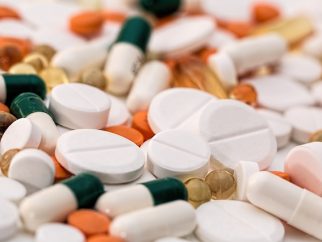In January, Gallup’s annual Most Honest and Ethical Professions Poll announced the American public ranked pharmacists in the top four, following nurses, doctors and teachers. In the survey, 63% of respondents ranked the honesty and ethical standards of pharmacists as very high or high. This trust is not unique to the United States: in most parts of the world, when people feel sick, they don’t call their doctor. They head to the local pharmacy, where the dying art of the skilled apothecary and knowledgeable druggist still lives on.
For centuries the exclusive way to become an apothecary was through apprenticeship. Under this system the aspiring apothecary would work side-by-side with an established professional practitioner, learning by observing and doing medication-related activities under the tutelage of the master craftsman.
The first college to train pharmacists in the U.S. was founded in 1821 as the Philadelphia College of Pharmacy. Impetus for this came from a plan by local physicians to start training pharmacists. Outraged that physicians would presume to be able to train pharmacists, local pharmacists started their own programs. The first pharmacy program in a public institution began in the late 1860s at the University of Michigan.
Over the years, many of the independent colleges of pharmacy had become affiliated with universities. After WWII, academic health centers began to emerge at U.S. universities as clusters of schools of the health professions assembled with a university hospital operated for the dual purposes of providing patient care and educating future professionals. Many of these operations included colleges of pharmacy.
Pharmacy curriculum also began to shift. Originally heavily rooted in chemistry, the pharmacy curriculum of the early 1900s prepared a pharmacist not only to prepare and dispense medications but also to do what today we call clinical chemistry or medical technology, such as a urinalysis for example. The chemical focus gradually transitioned to a biological focus during the 1960s with increasing emphasis on pharmacology. Then during the 1970s, a clinical focus began to emerge, moving the emphasis from the product to the patient.
As pharmacy curriculum became patient-focused, it was realized that no part of the curriculum included patient contact – a stark contrast to nearly all other training programs for health professionals. In the 1990s a new philosophy of pharmacy practice was advanced: pharmaceutical care. The touchstone of this approach was that the pharmacist should accept responsibility for assisting patients to obtain the very best outcomes from their use of medications.
Today, pharmacists work in a variety of settings – hospital, community, ambulatory care, long term care (LTC), military, veterinary, research and more. Trinity Health has two retail pharmacies:
KeyCare and B&B Northwest, and an inpatient pharmacy that provides medications for all patients in the hospital, as well as Trinity’s community clinics in the region. Among the three locations, Trinity employs over 80 staff, including pharmacists and pharmacy technicians, to ensure what the Institute for Healthcare Improvement (IHI) calls the “five rights” of medication administration: the right patient, the right drug, the right dose, the right route, and the right time.
“Because of the complexity of medications today, our pharmacy staff counsels each patient to ensure they understand prescribing directions, side effects and precautions,” said Loralee Feininger, director of Retail Pharmacy. “Whether we serve you in the pharmacy, or at the KeyCare drive through, we consider education part of our commitment to customer service.”
Required by the State Board of Pharmacy laws and regulations, the same expert care and consideration is afforded all patients in the hospital as well. “The hospital pharmacy provides medications and consultative services to all hospitalized patients, whether treatments are in IV medication form, or other routes of administration,” said Carolyn Seehafer, pharmacy director at Trinity Hospital.
A pharmacist also looks for many other red flags while filling your prescription, such as drug interactions and dosing, as well as provides direct oversight on orders to ensure safe medication practices. Extensive training, medication expertise, accessibility, and compassion makes community pharmacists uniquely indispensable to the patients they serve.
